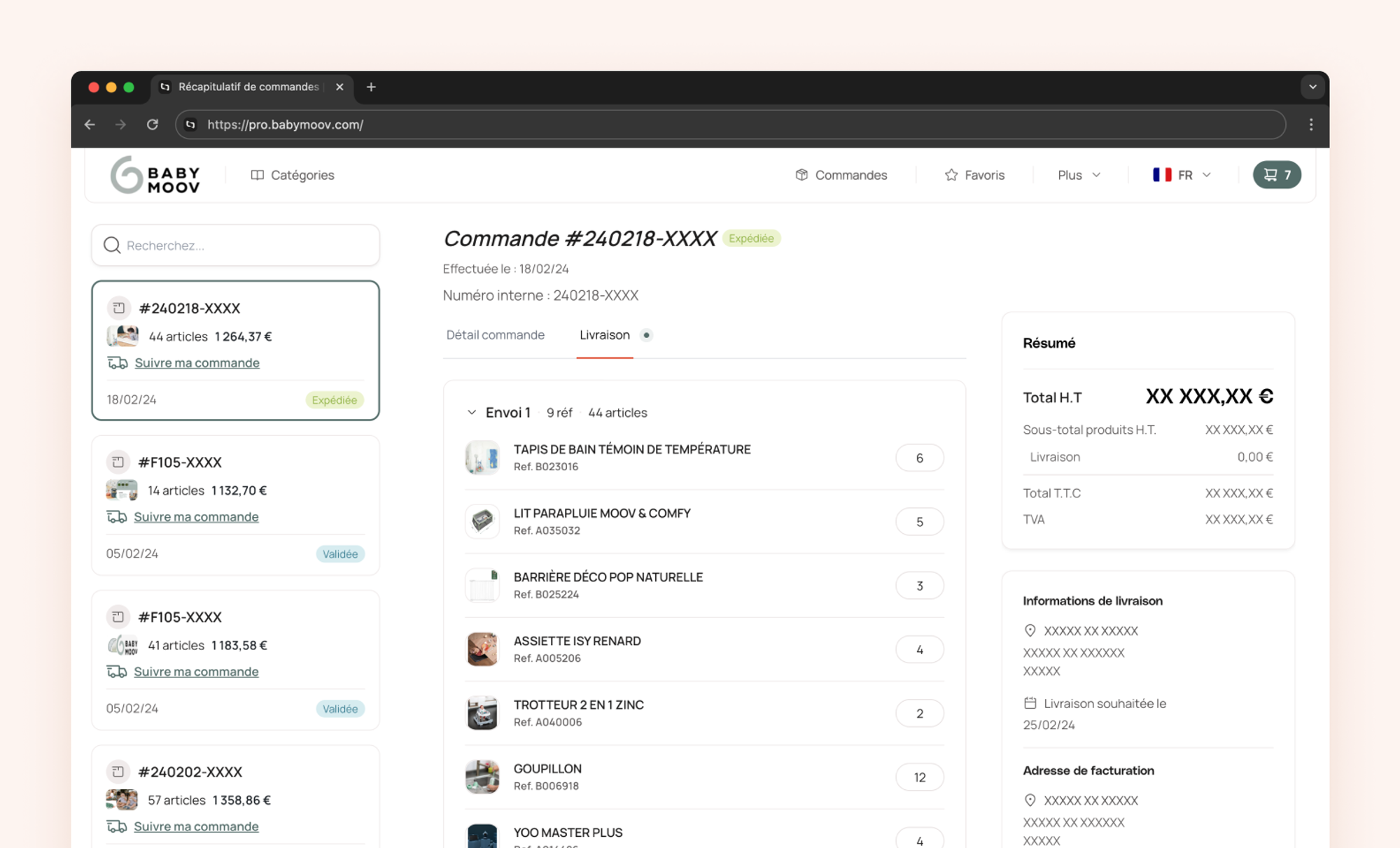When you think about commerce platforms, chances are the first names that come to mind are big names like Adobe Commerce or Salesforce Commerce Cloud. Large companies processing millions of orders already have a technological solution to manage their operations.
But small companies that are handling $5 million or $20 million in sales volume per year don’t really have a tool that works well for their scale. They already use an ERP system, but they spend a lot of time processing orders and entering information.
That’s why a French startup called Catalog wants to build a software-as-a-service product that seamlessly manages B2B sales across several sales channels. It works best for companies with roughly $5 million to $100 million in revenue per year.
“We integrate very tightly with the existing tech stack of the companies we’re targeting, which are companies that manage a lot of their B2B activity in their ERP,” Catalog co-founder and CEO Julien Bellemare told me. “Unlike Shopify, we didn’t need to build an incredible admin system that would let you manage stock, set pricing rules, and so on. Because if we did that, we’d be duplicating what they’re already doing in their ERP.”
At the same time, companies can’t simply just use something like Shopify for B2B sales with their ERP in the back end, as there are a lot of interactions happening over the phone or via email. Catalog’s customers can’t simply just say, “Now you have to head over to our website and order from there.”
Catalog supports these channels in different ways. There’s an online portal for clients who want to pick products directly and check prices without any back-and-forth. But for some customers, they choose to order some products after meeting with a salesperson.
In that case, Catalog can become the companion tool for the sales team as they can access the catalog, see past and ongoing orders, and check prices.

Finally, as Catalog wants to become the single source of truth for incoming orders, the startup also uses AI models to scan inbound emails and transform free-form conversations into orders in the platform. The original email also appears next to the order that was automatically generated.
A marketing opportunity
The not-so-obvious benefit of Catalog is that it can then be used as a marketing platform for existing customers. For instance, if a company is running a sales campaign, it might want to nudge its customers who usually buy this category of products to see if they want to order more items.
B2C companies that use Shopify already have plenty of martech products that they can use for activation campaigns and other sales improving processes. But these tools don’t necessarily work well for B2B companies.
“Your salesperson will also concentrate their meetings based on the priority of your customers . . . Your low-priority customers — your long and medium tail, as we might call it — your salesperson does nothing for them,” Bellemare said.
Catalog just raised a €3 million funding round (around $3.3 million at today’s exchange rate), with LocalGlobe leading the round. The startup was originally founded at Hexa, the Paris-based startup studio that helped with the launch of many popular B2B software-as-a-service startups, such as Front, Aircall and Spendesk. Helloworld, Kima Ventures, Motier Ventures and ATI also invested in Catalog.
Right now, Catalog focuses on only a handful of verticals, such as home and decoration (e.g., La Compagnie Dumas, Élitis), baby and kids (e.g., Babymoov, Gamin Tout Terrain) and fashion (Rivedroite Paris).
Catalog has decided to charge its customers a monthly subscription fee, which means that customers won’t pay more as they start using more Catalog to process orders. This way, the company hopes it can handle the majority of B2B orders for companies that have decided to use Catalog.
The startup competes with Djust, another French commerce platform startup that I covered. But Catalog’s CEO tells me that Djust works better for bigger companies, enterprise clients looking for a full-fledged platform.
Up next, Catalog could add other features, such as payment reconciliation, customer support integrations and optimizations when it comes to onboarding new clients. By focusing on small and medium businesses, Catalog could start offering a wide range of services that are specifically tailored for these small manufacturing and commerce companies. And it’s interesting to discover the pain points of an industry by looking at a vertical SaaS like Catalog.
































Comment